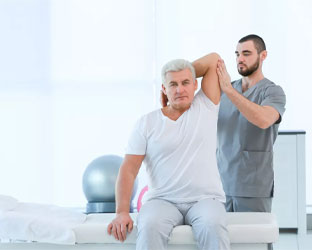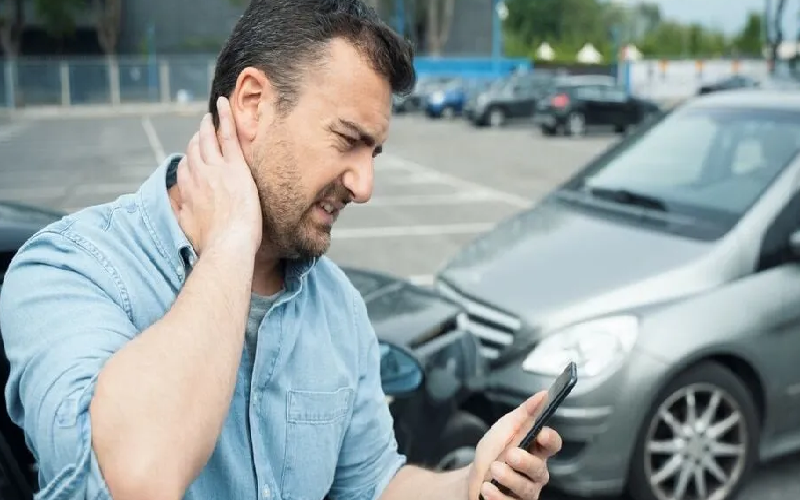Understanding MVA Rehabilitation
Motor vehicle accidents (MVAs) can significantly impact individuals, leading to a range of injuries that often require comprehensive rehabilitation. The recovery process is essential for restoring physical function and enhancing overall quality of life. This blog will explore seven key aspects of MVA rehabilitation, detailing how each contributes to effective recovery.
1. Initial Assessment
Comprehensive Evaluation
The rehabilitation process begins with a thorough assessment by healthcare professionals. This evaluation typically includes:
- Medical History Review: Gathering detailed information about past injuries, surgeries, and medical conditions.
- Physical Examination: Conducting a physical assessment to evaluate strength, flexibility, and areas of pain. This step often involves special tests to identify specific issues.
- Functional Assessment: Evaluating the patient’s ability to perform daily activities, such as walking, sitting, and lifting. Identifying specific limitations helps shape the rehabilitation plan.
The initial assessment serves as the foundation for an individualized rehabilitation plan, guiding healthcare providers in determining the most effective interventions.
Importance of Early Intervention
Early intervention can significantly impact recovery outcomes. The sooner a patient begins rehabilitation after an MVA, the more likely they are to regain full function and minimize long-term complications. Immediate assessments can help identify urgent issues, such as fractures or internal injuries, that may require prompt attention.
2. Developing a Customized Treatment Plan
Individualized Goals
After the initial assessment, a specific treatment plan is created, often involving input from various healthcare professionals. This plan may incorporate multiple therapeutic modalities to address the patient’s unique needs. Key elements of the treatment plan often include:
- Goals for Recovery: Establishing clear and measurable objectives for physical and emotional healing, such as improving range of motion or reducing pain levels.
- Timeline: Setting realistic expectations for recovery based on the severity of injuries and the patient’s overall health.
An individualized approach ensures that each patient receives the appropriate care to facilitate their recovery effectively.
Types of Treatment Modalities
Treatment plans may include a variety of modalities tailored to the patient’s needs, including:
- Physical Therapy: Focused on restoring mobility and function through exercises and manual therapy techniques.
- Occupational Therapy: Concentrating on helping patients regain the ability to perform daily activities.
- Pain Management Strategies: Utilizing alternative therapies and counseling to address pain and discomfort.
3. Physical Therapy
Strengthening Exercises
Physical therapy is a core component of MVA rehabilitation. Physical therapists design exercise programs that focus on:
- Strength Building: Exercises that target specific muscle groups to enhance overall strength and support recovery. Common exercises may include resistance training, bodyweight exercises, and therapeutic exercises specific to the injured area.
- Flexibility Training: Stretching exercises to improve flexibility and prevent stiffness. Therapists may teach patients techniques to safely stretch major muscle groups and joints.
Regular physical therapy sessions are vital for regaining mobility and function after an accident.
Manual Therapy Techniques
In addition to exercises, manual therapy techniques, such as joint mobilization and soft tissue manipulation, may be utilized. These methods aim to:
- Reduce Pain: Alleviating discomfort and improving the range of motion through hands-on techniques. For example, myofascial release may be used to ease tight muscles and fascia.
- Promote Healing: Encouraging circulation and healing in affected areas through targeted manipulation.
Education on Body Mechanics
Part of physical therapy involves educating patients on proper body mechanics. This education includes:
- Posture Correction: Teaching patients how to maintain good posture during activities to minimize strain on injured areas.
- Safe Movement Techniques: Instructing on how to lift, bend, and move safely to avoid further injury.
4. Occupational Therapy
Activities of Daily Living (ADLs)
Occupational therapy focuses on helping individuals regain the ability to perform everyday activities. Therapists work with patients to develop strategies for:
- Basic Self-Care: Tasks such as dressing, grooming, and bathing. Therapists may suggest adaptive equipment or techniques to simplify these activities.
- Work-Related Skills: Assisting patients in returning to work and modifying tasks as needed. This may involve assessing work environments and suggesting ergonomic adjustments.
Cognitive Rehabilitation
In cases where cognitive function may be affected by the accident, occupational therapists may also incorporate cognitive rehabilitation strategies. These strategies can help patients:
- Enhance Memory and Attention: Using exercises and tasks designed to improve cognitive skills essential for daily living and work.
- Develop Problem-Solving Skills: Helping patients learn to navigate challenges they may encounter in their daily activities.
5. Psychological Support
Counseling and Therapy
Emotional recovery is equally important as physical healing after an MVA. Many individuals experience anxiety, depression, or post-traumatic stress disorder (PTSD). Mental health professionals may provide:
- Counseling Sessions: Offering a safe environment to discuss feelings and experiences related to the accident. These sessions can help individuals process their emotions and develop coping strategies.
- Cognitive Behavioral Therapy (CBT): Helping patients recognize and change negative thought patterns that may arise from the trauma of the accident.
Support Groups
Support groups can also be beneficial for those recovering from an MVA. These groups provide a space for individuals to:
- Share Experiences: Connecting with others who have faced similar challenges can reduce feelings of isolation.
- Receive Emotional Support: Group members can offer encouragement and share coping strategies.
6. Pain Management Techniques
Alternative Therapies
In addition to physical and occupational therapy, various alternative therapies may be integrated into the rehabilitation plan. Some effective options include:
- Acupuncture: Utilizing needles to stimulate specific points to relieve pain and promote healing.
- Massage Therapy: Promoting relaxation and reducing muscle tension through targeted techniques, such as Swedish massage or deep tissue therapy.
Lifestyle Modifications
Encouraging patients to adopt certain lifestyle changes can also aid in recovery. Suggestions may include:
- Regular Physical Activity: Engaging in low-impact exercises, such as walking or swimming, can help improve overall physical condition and support healing.
- Healthy Nutrition: A balanced diet can support recovery and overall well-being, with a focus on anti-inflammatory foods.
7. The Role of Multidisciplinary Teams
Collaboration Among Healthcare Professionals
Effective MVA rehabilitation often involves a team approach, bringing together various healthcare professionals to meet the diverse needs of the patient. The team may include:
- Physiatrists: Specialists in rehabilitation medicine overseeing the treatment plan.
- Physical Therapists: Experts in movement and exercise who aid in restoring physical function.
- Occupational Therapists: Professionals focused on enhancing daily living skills.
- Psychologists or Counselors: Providing emotional support and therapy to address psychological impacts of the accident.
This multidisciplinary collaboration ensures that all aspects of a patient’s recovery are addressed comprehensively, leading to better outcomes.
Get Started on Your Recovery Journey
If you or someone you know has been involved in a motor vehicle accident and needs support for rehabilitation, our team at ARKA Physiotherapy is here to help. We specialize in developing tailored treatment plans that address both physical and emotional aspects of recovery. Don’t wait—contact us today to schedule a consultation and take the first step toward regaining your quality of life.

